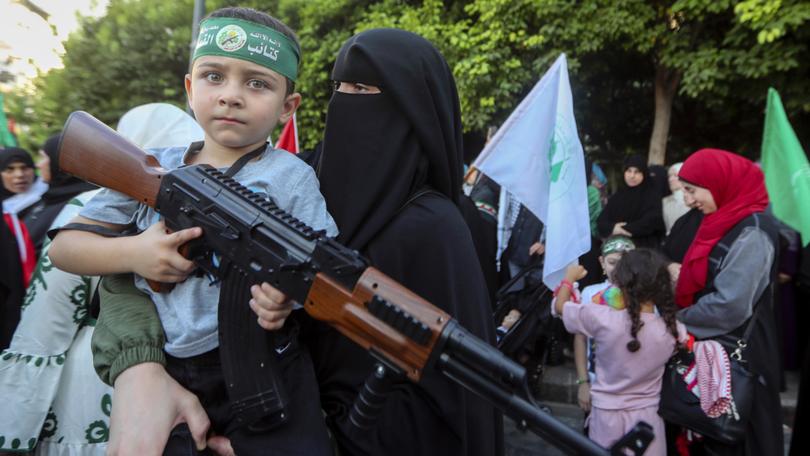Lebanon travel warning: Anthony Albanese urges Australians to leave Lebanon now
Prime Minister Anthony Albanese has pleaded with Australians not to travel to Lebanon, and urged those already there to get out while they still can, as the Middle East conflict escalates.

Prime Minister Anthony Albanese has pleaded with Australians to not travel to Lebanon, and urged those already there to get out while they still can, amid growing concerns over potential escalation in the Middle East.
The warning came after Israel killed Hamas leader Ismail Haniyeh at his home in the Iranian capital of Tehran on Wednesday, in the wake of militant group Hezbollah killing 12 children in an airstrike in the Israeli-occupied Golan Heights over the weekend.
The travel advice for Lebanon was escalated earlier this week, with the Department of Foreign Affairs and Trade recommending Australians “leave immediately”.
Sign up to The Nightly's newsletters.
Get the first look at the digital newspaper, curated daily stories and breaking headlines delivered to your inbox.
By continuing you agree to our Terms and Privacy Policy.On Thursday, Mr Albanese warned there were increasing concerns Beirut Airport could close at short notice, which would mean visitors could be stranded for an extended period.
“There is a risk that the Beirut airport might not be open for commercial flights, and given the numbers of people that are there, there is no guarantee that we can just guarantee that people will be able to come home through other means if that airport is shut,” Mr Albanese said.
“We say to people, listen to the warnings which are there and please, over recent months we have seen people continue to go and travel to the region, and we have made very clear our warnings about that.”
Foreign Affairs Minister Penny Wong has written to prominent members of the Australian Muslim community to ask them to reiterate warnings to leave Lebanon while commercial flights are still available and the airport remains functional.
“I acknowledge the concerns of members of the Lebanese Australian community at this difficult time. You will understandably be worried for the safety and welfare of your loved ones in Lebanon,” she said in a video message.
“The Australian Government shares your concerns and is working with partners to minimise the risk of escalation.”
Israel has yet to claim responsibility for the death of Haniyeh, but vowed to kill him and other Hamas leaders over the group’s October 7 attack on Israel that killed 1200 people and saw some 250 others taken hostage.
An Iranian-backed militant group Hezbollah rocket strike killed 12 children in the Israeli-occupied Golan Heights over the weekend.
Hezbollah denied responsibility, but a retaliatory Israeli airstrike killed at least three people and injured 74 in the densely populated Beirut suburb and known Hezbollah stronghold of Haret Hreik on Tuesday night in Lebanon.
The ongoing war has killed nearly 40,000 Palestinians, according to the Hamas-run Gaza Health Ministry, whose count does not differentiate between civilians and combatants.
Mr Albanese said Australia wanted an end to the conflict.
“We want to see a de-escalation, we want to see a ceasefire, want to see the hostages released and we want to see a plan for peace and security in the Middle East where both Israelis and Palestinians can live in peace and security with prosperity,” he said.
“That is the objective that my Government has.
“We will continue to play a constructive role in that.”
The latest escalation comes as Opposition Leader Peter Dutton visits Israel, where he had a one-hour meeting with Prime Minister Benjamin Netenyahu on Wednesday during which he pledged to rebuild the relationship with Australia.
“I sent a very clear message on behalf of the Coalition that if we win the next election we look forward to the relationship becoming stronger and making sure that we can build off the platform of previous prime ministers where the relationship has been close, it has been strong, to our mutual benefit,” he told Sky News.
Asked if Mr Dutton’s presence in Israel risked “escalating things”, Mr Albanese said he hoped his political oponent remained safe.
“I am sure there is security ensuring that occurs,” Mr Albanese added.
